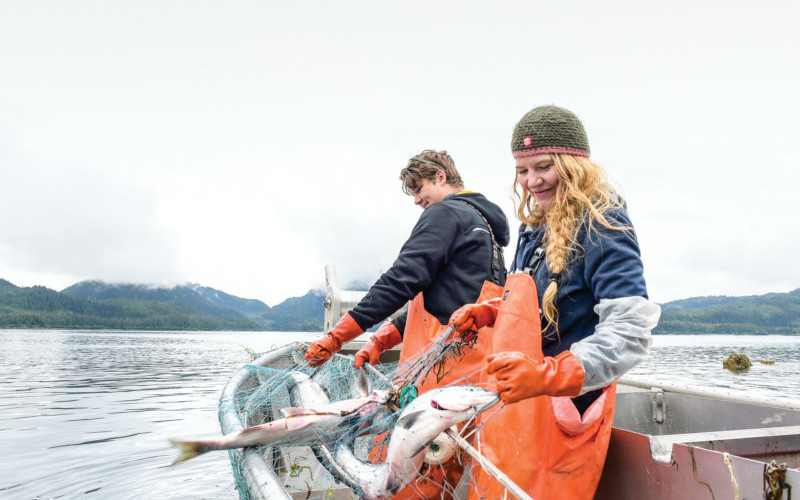Bristol Bay harvesters have some experience with big challenges, the ones that have brought us together over the years. For two decades, we stood side-by-side in the fight against large-scale open-pit mining in the Bristol Bay watershed — and won. When covid-19 rocked communities and grounded businesses across the world, we worked together to ensure a safe fishery could continue providing food to families near and far.
It’s the big challenges, and the big opportunities that give us confidence in a united setnet and drift fleet within the Bristol Bay Regional Seafood Development Association (BBRSDA). When setnetters vote this fall on joining the BBRSDA through a 1 percent harvest tax, we hope they will vote yes.
The BBRSDA has been at the forefront of all our big challenges since 2006, from quality improvements and worldwide marketing to science advocacy and habitat protection. They don’t focus on allocative or other divisive issues for a reason; the more important issues are those that need our unified attention. That’s why most of those efforts have benefited the setnet and drift fleets. But setnetters could and should be getting more from this work.
Setnetters have accessed quality support programs — like ice bags, totes, and machines — and they’ve benefited from the branding and marketing work that promotes all Bristol Bay wild salmon worldwide. But they haven’t had the opportunity to guide board input and dedicated funds to tailor programs for their operations.
The fleet has been clear, not every strategy that works on a drift boat is right for a setnet operation, or even the same for setnetters beach to beach. That’s the input needed now — what will our next generation of quality, market and habitat protection look like? What exactly do setnetters want and need from these resources to build stronger businesses?
We’ve heard from setnetters who are direct marketing, or focused on distinct quality improvements, or that have concerns about future threats to the fishery. Fishermen want a forum to advocate for the tools they need individually, and as a whole.
Particularly in the case of setnet operations, connecting the fleet around critical issues when we’re spread across five diverse districts is tough. We need a region- wide gathering space, where the diversity of the Bay’s operations have a platform to build relationships, innovate and organize.
That platform has already been built. In addition to existing resources, the BBRSDA board took the steps this spring to change bylaws adding setnet board seats, and dedicated funds for setnet specific projects. Those changes go into effect when the fleet votes “Yes on Setnet” this fall.
We’re salmon people at our core, regardless of whether we fish from the beach or drift boat. Just like the fish we catch, we share the same habitat, the same marketplace, and both need our united support to shape a strong fishing future.
We hope you will join us in favor of a united fleet and vote YES ON SETNET joining the BBRSDA this fall.
Melanie Brown has been set-netting the Naknek beach on the site that her great-grandfather staked out since 1979 and now fishes that site with her children. She knows the drift fishery too from crewing for her dad in the shoulder seasons.
Nicholas Dowie was born and raised in Kodiak, Alaska. As a fourth generation Ekuk Beach setnet fisherman in the Nushagak District, he has migrated to Bristol Bay seasonally every year of his life. His family-based operation is composed of four permit holders including his wife and two daughters.
Michael “MJ” Jackson (F/V Kelley J) has fished in Bristol Bay for over 30 years, many of those seasons with his two sons. He has served as BBRSDA board member and board president.
Peter Andrew Jr. (F/V Lucky Bear) is a Dillingham local and has fished commercially for 51 seasons. He serves as a BBRSDA board member and currently serves on the Bristol Bay Native Corporation (BBNC) board.






